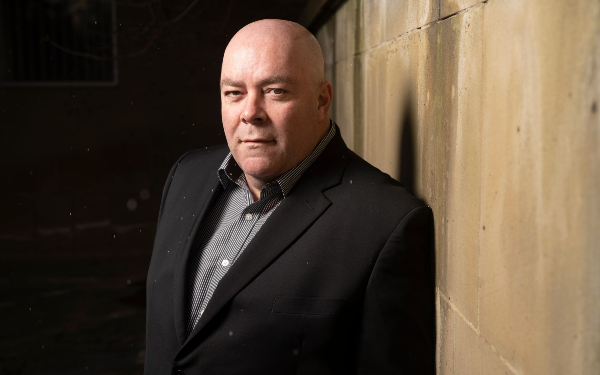
The requirement that only social workers carry out age assessments of unaccompanied asylum seekers in disputed cases should end, a sector leader has said.
Association of Directors of Children’s Services (ADCS) president John Pearce said other professionals were capable of carrying out the checks and the current situation was putting pressure on councils’ social work capacity.
A series of legal judgments, starting with R (B) v London Borough of Merton [2003], have set out the courts’ requirements for lawful age assessments, including that they are carried out by properly trained and experienced social workers.
Concerns over impact on social work capacity
Pearce told Community Care that the Merton age assessment process was now 20 years old and a new procedure for conducting the checks needed to be established.
“We need something up to date and fit for purpose, [setting out] what it involves and who should be involved. Why are social workers the people undertaking those assessments? There are a whole range of professionals that could be doing that without the impact on social work capacity.”
Age assessments are generally the responsibility of the local authority in which the claimant first presents (known as a “spontaneous arrival”), or where they have been moved to under the government’s National Transfer Scheme (NTS), which is designed to relieve pressure on ports of entry, such as Kent.
Pearce has previously criticised the Home Office’s practice of treating unaccompanied young people it accommodated in hotels as spontaneous arrivals in the area that the hotel was based, making that local authority responsible for any age assessment.
The number of age-disputed cases almost doubled from 2021-22, from 2,539 to 4,675, though has fallen back since, to 1,614 in the first nine months of 2023 (equivalent to about 2,150 over the year), according to Home Office data.
There has also been a reduction in the number of young people placed in hotels, with 19 accommodated as of 10 October 2023, according to a recent court ruling on the NTS, down from 218 in July of this year.
Social work recruitment struggles
The Home Office has set up a National Age Assessment Board (NAAB), which it intends to take responsibility for the majority of age assessments in future.
However, it has struggled to recruit practitioners to the NAAB meaning that the board only started work in two regions – London and the West Midlands – earlier this year, rather than the full country, as planned.
The British Association of Social Workers has urged practitioners not to apply for jobs with the body, lest their decision making be compromised by the Home Office’s political agenda.
Besides creating the NAAB, the Home Office has also legislated for so-called scientific checks to be carried out as part of the age assessment process, in the face of widespread opposition from charities, social work groups and parliamentarians.
‘Scientific’ age checks approved
Last week, Parliament approved regulations permitting the use of dental, hand and wrist x-rays and scans of the collarbone and knee bones for this purpose. The government had put these forward on the basis of advice from its age estimation science advisory committee (AESAC), set up to guide ministers’ decisions on the issue.
In a House of Commons debate on the regulations last month, immigration minister Robert Jenrick said scientific checks would be “one piece of evidence” used within a “holistic, social worker-led assessment”.
“The decision will be made by a social worker,” he said. “If that social worker believes, despite the scientific age-assessment evidence, that an individual is a minor, it will ultimately be up to them to make the final decision.”
Under the Nationality and Borders Act 2022, the person must consent – or appropriate consent must be given on their behalf if they lack capacity – for an x-ray or scan to go ahead.
Concerns over consent process for checks
However, social workers and other decision makers must take refusal to consent to the scientific method without reasonable grounds as a damaging the person’s credibility, or that of the person refusing on their behalf.
In its Illegal Migration Act 2023, the government has gone further in respect of unaccompanied asylum seekers deemed to have entered the country illegally.
That legislation enables the home secretary to make regulations deeming those who refuse consent without reasonable grounds to be treated as adults.
BASW attacked the measure as “coercion” last week in a joint statement with the Royal College of Paediatrics and Child Health (RCPCH) and the British Dental Association (BDA) that heavily criticised the scientific checks plan.
Policy ‘in line with scientific advice’
The Illegal Migration Act measure is also directly contrary to the position taken by the government’s own advisers – the interim AESAC – in a report this year, in which it said “no automatic assumptions or consequences should result from refusal to consent”.
The Home Office has no current plans to implement the measure in the Illegal Migration Act. It has also defended the provision in the Nationality and Borders Act as consistent with the AESAC’s opposition to automatic assumptions being made from a refusal to consent without reasonable grounds.
Jenrick told the Commons last month that this “would not automatically preclude the individual’s being considered a child”.
“That refusal would still need to be taken into account alongside other relevant evidence as part of the comprehensive age-assessment process undertaken by social workers,” he added.
However, despite approving the regulations following a debate last week, the House of Lords passed a motion calling for the government to withdraw them, including on the grounds that it was unclear whether people could freely consent.
The motion also said that the government had failed to produce an impact assessment or costings for the scientific methods policy for Parliament to scrutinise.
‘No evidence’ scientific methods improve certainty on age
BASW chief executive Ruth Allen said: “There is no evidence provided that biological methods deliver greater certainty on age determination than the currently used Merton process.
“We are also conscious that the government has not explained what shortfalls have been identified in the Merton process to warrant a change nor how it could be improved.”
The RCPCH said it was not ethical for people to be exposed to radiation – through x-ray – for non-medical purposes, while the BDA said the proposed checks “[failed] basic tests on ethics and accuracy”.
A Home Office spokesperson said: “Scientific methods of age assessments enable us to make better informed and more consistent decisions on age and to identify adults trying to exploit the system. Adults who knowingly pose as children and refuse to be scientifically age assessed without good reason, must face consequences.”






 Family help: one local authority’s experience of the model
Family help: one local authority’s experience of the model  ‘I spent the first three months listening’: how supportive leadership can transform children’s services
‘I spent the first three months listening’: how supportive leadership can transform children’s services  How senior leaders in one authority maintain a culture of excellence
How senior leaders in one authority maintain a culture of excellence  How staff support ensures fantastic outcomes for children and families
How staff support ensures fantastic outcomes for children and families  Workforce Insights – showcasing a selection of the sector’s top recruiters
Workforce Insights – showcasing a selection of the sector’s top recruiters 

 Facebook
Facebook X
X LinkedIn
LinkedIn Instagram
Instagram
We don’t have enough social workers to do a task so instead of addressing workforce and recruitment issues we should get others to do them instead. Social work leadership at it’s crassest and defeatist best. No wonder social workers are so demorolised and have zero confidence in sector ‘leaders’. This is like saying too many people are injured or die because of motorbike accidents so we should replace bikes with cars. Pitiful.
There was a time UASC claimed be 15. Since ruling in Lambeth when three 17 year olds were judged to be sec20, many now claim be 17 and a jalf. Makes assessing harder re over 18. Whole system needs an overhaul
I’d go much further and state very firmly indeed that making a truly effective legally defensible decision (with potentially major long term financial implications for the assessing authority) on the veracity or otherwise of a “seventeen year old boy’s” age claim is totally impossible regardless of the tools and methods used for assessment.